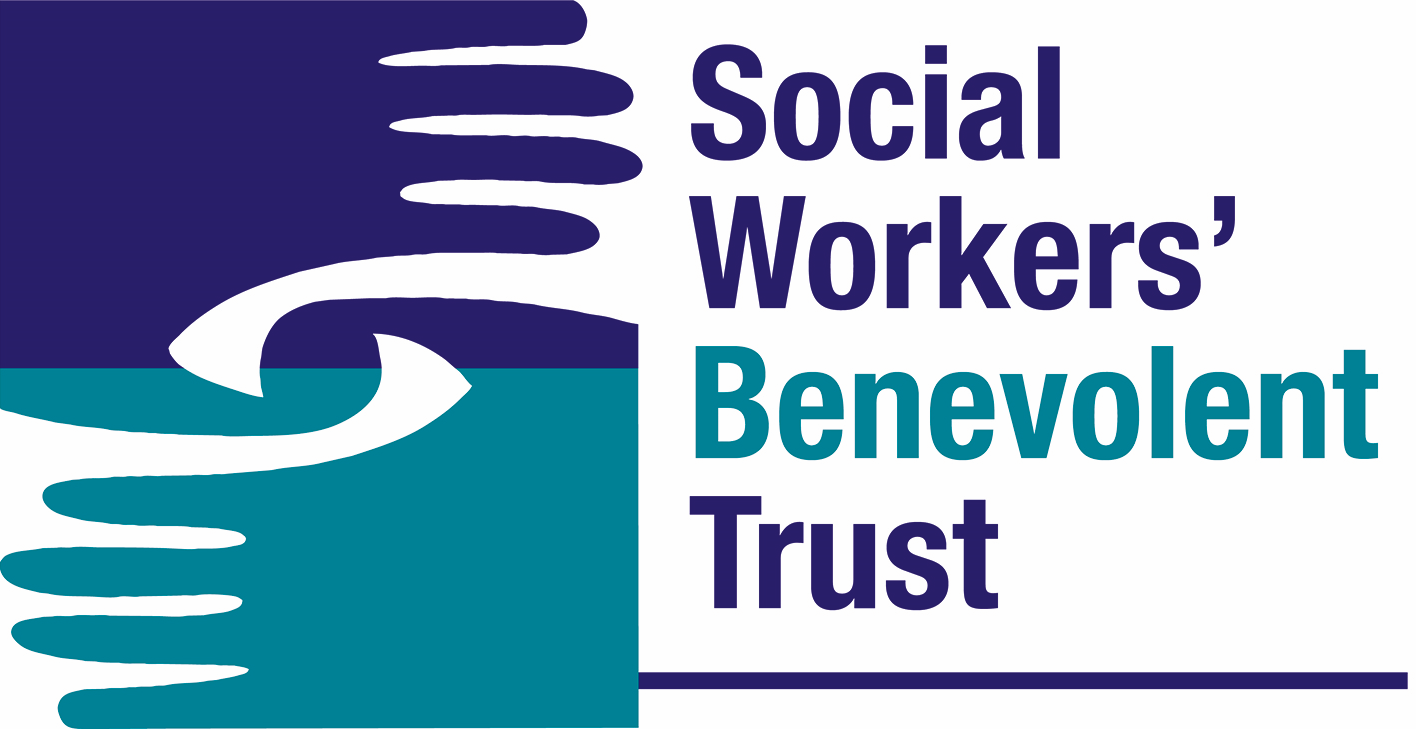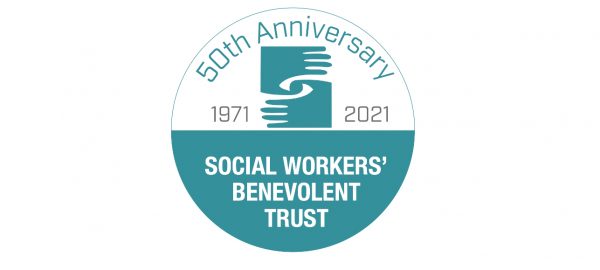The 50-4-50 Fundraiser-and what a year it was!
2021 was our 50th Anniversary year. Throughout 2021 we celebrated 50 years of supporting Social Workers and their families who are experiencing hardship; the Trustees raised both the profile of the Trust and some additional funding by participating in a range of sponsored activities in “50-4-50” during June last year. See how you can continue to add your support.
Fiftieth Anniversary
It was our birthday – and it was a big one!
The Social Workers Benevolent Trust was 50 years old in June last year and during 2021 we celebrated five decades of supporting both current and former social workers and their dependants who are experiencing hardship.
In 1970, the British Association of Social Workers (BASW) was formed to take over the activities and functions of various organisations including The Association of Psychiatric Social Workers, The Institute of Medical Social Workers, The Society of Mental Welfare Officers, The Association of Child Care Officers, The Association of Family Case Workers, The Association of Social Workers and The Moral Welfare Workers’ Association.
Some, if not all the above organisations had benevolent funds for the support of their respective members and in June 1971 the members of BASW agreed the need for a new fund to carry their work on and the Social Workers Benevolent Trust was established. However, an applicant does not have to be a member of BASW, just a current or former social worker.
The Trust is managed by a Board of 10 Trustees, all of whom at the moment are ether current or former social workers. They meet at least 6 times a year to consider applications, although urgent applications can be considered outside of those meetings, and twice a year to manage the business of the Trust. While attempts have been and continue to be made to make the Board more representative of the social work profession across the four countries of the United Kingdom, there are currently no members from the BAME or disabled communities or from Scotland or Northern Ireland. All the Trustees are volunteers and while the Trust is dependent upon BASW for administrative support, Trustees do produce some statistics to enable the Trust to advise BASW of where applications are coming from and for what reasons to inform any policies or campaigns it may want to pursue.
The Trust has limited resources: it receives over half its funding from BASW drawn from membership fees, it has a relatively small investment portfolio and benefits from time to time from individual donations and legacies. It has in recent years successfully applied for a grant from the CSIS (Civil Service Insurance Society Charity Fund). It has a total annual budget of approximately £80,000 which is spent to provide grants of between £400 and £500, though larger grants can be made in exceptional circumstances. In recent years, the number of applications being received has been growing and, in particular, an increasing number of exceptional grants have been made to cover the costs of applicants who, having sought debt advice, are declaring themselves bankrupt; often this is the result of family break-ups after lengthy periods of domestic abuse. Again, only in exceptional circumstances will more than one grant be paid to any individual applicant in any twelve month period. Many applicants or their dependants have long-term physical or mental health difficulties themselves that either have caused them to have to give up work or prevent them working in the short-term.
The Trustees have noticed the increasing level of debt that applicants are finding themselves in; the amount of support that the Trust is able to provide to individual applicants may seem small relative to the level of debt, but applicants often refer to the importance of the grant they receive in giving them both the feeling that they are not alone or forgotten and the impetus to carry on. Trustees will often be able to suggest other sources of support they could contact, such as organisations that provide furniture or practical help such as debt advice etc.
It is of some concern to the Trustees that the existence of the Trust is not wider known within the profession; while some applicants do say that they were told about the Trust by colleagues, often they have been advised to make an application by a debt advice service. The Trustees decided to raise the profile of the Trust during our anniversary year by organising “50-4-50”, a series of activities that they undertook mainly during June 2021 but also throughout last year which they got individual and organisational sponsors for. These included walking or running – in the case of some Trustees jogging rather than running! – 50 kilometres or miles but they hoped others would seek sponsors for activities of their own.
The prime aim of “50-4-50” was to raise awareness of the Trust and the level of hardship and stress being experienced by social workers and which continues being made more severe by the Pandemic; social workers are no different to other workers in this regard, but like colleagues in other areas of social care, they tend to be overlooked in the media, which focuses, understandably, on the impact of the Pandemic on health care workers.
We are grateful for those who gave their time in the 50-4-50 challenges and so raising much needed funds, as well as to those who donated to the Trust by supporting us financially,
The need for the Trust continues to grow and the circumstances of the applicants can be distressing to read. If you would like to donate to the Trust details of how you can do so and more information about the Trust can be found at www.swbt.uk or our Just Giving page https://www.justgiving.com/campaign/SWBT50-4-50
It may be that you know of someone who would benefit from the Trust’s support, details of who is eligible to apply and how to do so are also available at www.swbt.uk

